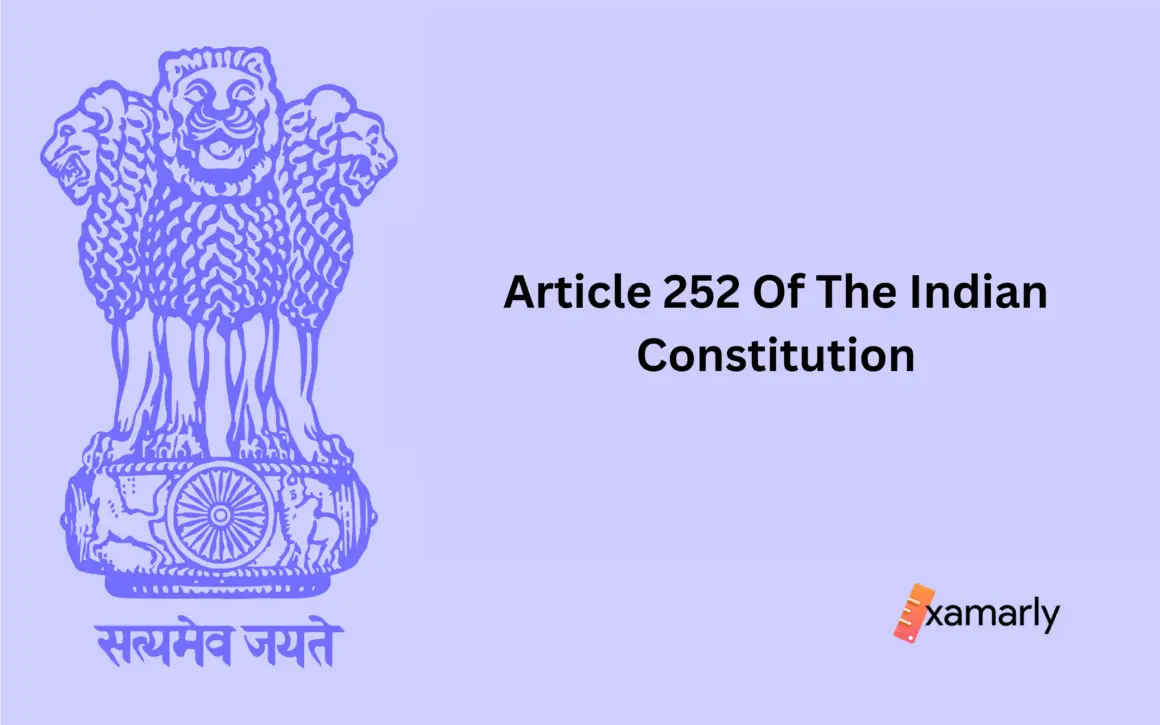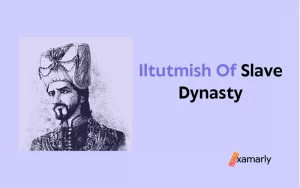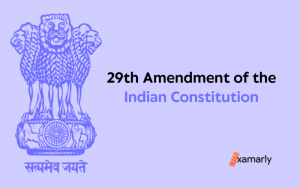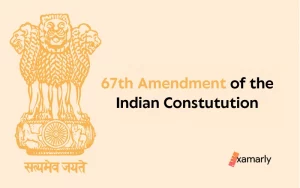Article 252 of the Indian Constitution deals with the power of Parliament to legislate for two or more states by consent and for the Union.
It allows for the Parliament to make a law for the whole or any part of the country, even if it applies to only two or more states.
If those states have requested it and if the law is passed with the consent of the state legislatures concerned.
With this rule, the states can ask the Parliament to help them with important national or regional issues, and the Parliament can pass laws on those issues with the states’ permission.
Let us dig deep into Article 252 of the Indian Constitution and have a deeper understanding of what is being said and done in the Article.
Article 252 Of The Indian Constitution – In Detail
Let us break down each and every clause present in Article 252 of the Indian Constitution to have an in-depth insight.
Clause 1 – As it is & Explained
(1) If it appears to the Legislatures of two or more States to be desirable that any of the matters with respect to which Parliament has no power to make laws for the States except as provided in Articles 249 and 250 should be regulated in such States by Parliament by law, and if resolutions to that effect are passed by all the House of the Legislatures of those States, it shall be lawful for Parliament to pass an Act for regulating that matter accordingly, and any Act so passed shall apply to such States and to any other State by which it is adopted afterwards by resolution passed in that behalf by the House or, where there are two Houses, by each of the Houses of the Legislature of that State
The first clause of Article 252 of the Indian Constitution says that it shall be lawful for Parliament to pass an Act for the purpose of regulating a matter in accordance with the provisions of Articles 249 and 250, if it appears to the legislatures of two or more states to be desirable that any of the matters with respect to which Parliament has no power to make laws for the States.
Besides, except as provided in Articles 249 and 250, should be regulated in such States by law, and if resolutions to that effect are passed by all of the House of the legislatures of those states
Clause 2 – As it is & Explained
(2) Any Act so passed by Parliament may be amended or repealed by an Act of Parliament passed or adopted in like manner but shall not, as respects any State to which it applies, be amended or repealed by an Act of the Legislature of that State
The second clause of Article 252 of the Indian Constitution says that any Act that was so passed by Parliament may be amended or repealed by an Act of Parliament that was passed or adopted in the same manner.
However, in regards to any State to which it applies, it shall not be amended or repealed by an Act of the Legislature of that State.
This is because any Act that was so passed by Parliament may be amended or repealed by an Act of Parliament that was passed or adopted in the same manner.
Related – Article 234 Of The Indian Constitution
Summing Up
We can conclude from Article 252 of the Indian Constitution that Parliament has no power to make laws for the States except as provided in Articles 249 and 250.
It is lawful for Parliament to pass an act regulating that matter accordingly. Any act so passed by Parliament may be amended or repealed by an act of Parliament passed or adopted in like manner.






